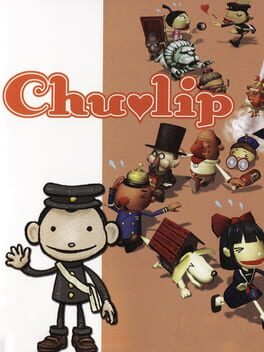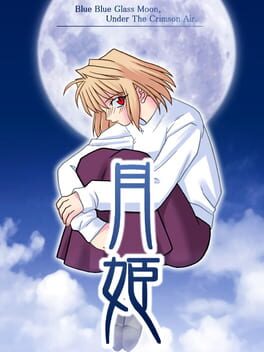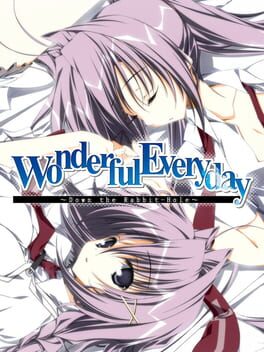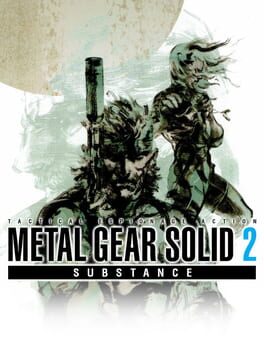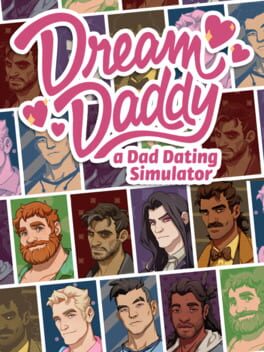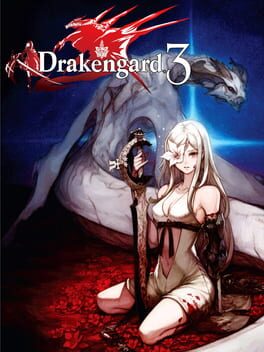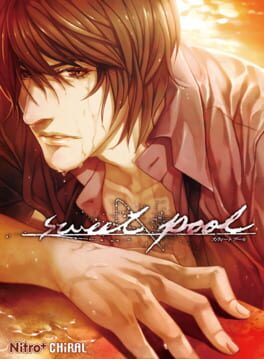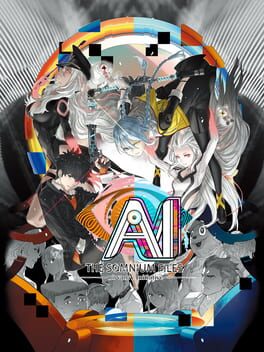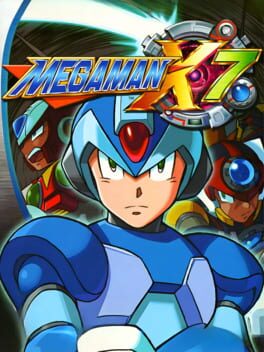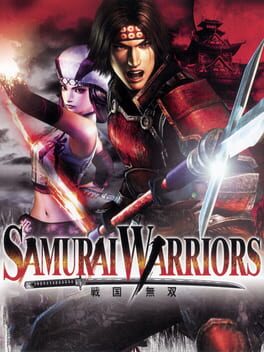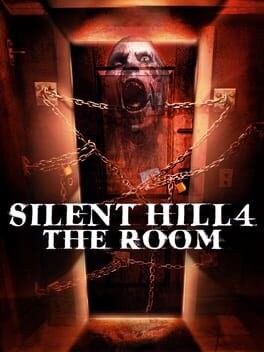Texhs
I hate how overused the term is these days, but I’d argue this is a true deconstruction, not because “lol what if good guy is actually bad guy” but because it’s about the way that stock JRPG characters become so much more than the sum of their parts through perception, perhaps even in a way that wasn’t intended by the devs or varies from player to player. The opening segment that depicts the actual game the boy is playing is overly literal and simplistic in its dialogue, seemingly a generic experience, and yet when he’s sucked into the game world, we see it through the lens of his imagination: a world not of cardboard cutouts but of fully realized people with interiority who exist outside the scope of the protagonist: enhanced in higher definition, both literally and figuratively. And, well, haven’t you ever done that as a kid? Walk around a RPG village and wonder about the minute details of the citizens’ lives? It’s such a compelling argument for why we feel so nostalgic for some childhood games, and yet when we revisit them as adults, we may find them far more barren then we remembered them. As adults in an increasingly hectic landscape, we have become so task-oriented that it’s hard to muster that same childlike wonder because we’re just in a rush to get to the next game in our ever-expansive backlogs.
“Love” is what makes the world go ‘round here, and while it could be taken from a very literal perspective on sharing kindness with others, I think it does mean a bit more as to how we interact with games. After all, we often get back as much as we are willing to give to a game. The more invested I feel, the more I’m willing to read between the lines, to ponder the significance of dialogue and find meaning in places possibly not even intended. That could be aptly described as “giving love” to a work. Umineko flashed through my head as the word “love” was repeated so many times - there are many, many differences, but one common thematic thread between the two of them is the usage of “love” as a tool for interpreting a text.
So this could just be a game about how awesome video games are, earnest yet self-indulgent as well, but that’s not what moon has settled for. moon subtly establishes boundaries for itself as a work of fiction through its metatextual presentation, not truly “another world” to be lost in. It anticipates the potential for a toxic quasi-parasocial relationship to be formed between the player and its characters, aiming directly for it in the ending sequence, because no matter how much life you infuse in these characters, they are still but lines of code created by people who know nothing about you. It’s an interesting message that the game balances very well, both affirming the positivity of deeper meaning in games while cautioning not to dwell on them, and it all comes from a place of affection for the medium.
I’m definitely more in love with the concept and message than the actual execution in some places; sadly, I didn’t collect all the Love in the world because there’s no way in hell I’m going to keep grinding at the fishing contest until I’m lucky enough to win, but maybe that’s what the developers wanted? When it comes to those last few darn Love points, the game stopped sparking joy, and I probably got the most out of my time by avoiding the task-oriented mindset of completionism, dipping my feet as deep as I felt comfortable doing before retreating. You’re not supposed to sink countless hours into moon - you understand the love the game is trying to convey and then carry it with you elsewhere, and I am assuredly going to think about this for a long time both in the context of media as well as my own life.
P.S. really glad I finished this minutes after midnight so I didn’t have to edit my top games of 2021 list, lol
“Love” is what makes the world go ‘round here, and while it could be taken from a very literal perspective on sharing kindness with others, I think it does mean a bit more as to how we interact with games. After all, we often get back as much as we are willing to give to a game. The more invested I feel, the more I’m willing to read between the lines, to ponder the significance of dialogue and find meaning in places possibly not even intended. That could be aptly described as “giving love” to a work. Umineko flashed through my head as the word “love” was repeated so many times - there are many, many differences, but one common thematic thread between the two of them is the usage of “love” as a tool for interpreting a text.
So this could just be a game about how awesome video games are, earnest yet self-indulgent as well, but that’s not what moon has settled for. moon subtly establishes boundaries for itself as a work of fiction through its metatextual presentation, not truly “another world” to be lost in. It anticipates the potential for a toxic quasi-parasocial relationship to be formed between the player and its characters, aiming directly for it in the ending sequence, because no matter how much life you infuse in these characters, they are still but lines of code created by people who know nothing about you. It’s an interesting message that the game balances very well, both affirming the positivity of deeper meaning in games while cautioning not to dwell on them, and it all comes from a place of affection for the medium.
I’m definitely more in love with the concept and message than the actual execution in some places; sadly, I didn’t collect all the Love in the world because there’s no way in hell I’m going to keep grinding at the fishing contest until I’m lucky enough to win, but maybe that’s what the developers wanted? When it comes to those last few darn Love points, the game stopped sparking joy, and I probably got the most out of my time by avoiding the task-oriented mindset of completionism, dipping my feet as deep as I felt comfortable doing before retreating. You’re not supposed to sink countless hours into moon - you understand the love the game is trying to convey and then carry it with you elsewhere, and I am assuredly going to think about this for a long time both in the context of media as well as my own life.
P.S. really glad I finished this minutes after midnight so I didn’t have to edit my top games of 2021 list, lol
2002
“In the process of becoming an adult, there comes a moment for each of us when we’re rejected by the ‘world.’ The person we were so in love with dumps us. The school we wanted to go to so badly doesn’t let us in. The career we were trying for doesn’t pan out. Everyone has a moment like that. And that’s okay. There’s no such thing as something which mustn’t be lost. Everyone has the freedom to love someone or something. We are free. We mustn’t forget that.” - Kunihiko Ikuhara
I really, really had to play this game as soon as I finished moon. I was enamored by the sincere love that the game espoused without ever becoming sappy, and that clearly carries over into Chulip’s kissing quest. Much has been written about Chulip as a story about the pains of emotional vulnerability that is necessary to learn to truly love someone, and I HIGHLY recommend ludzu’s review of the game for more detail on that. But besides love, I think another keyword shared between the two games is “perspective”: moon was about the perspective of a player who breathes life into stock RPG characters, while Chulip is about the oddities of adulthood from a child’s perspective.
I really dislike the “wow Japanese games sure are CRAZY!” Orientalist mindset but this game truly is offbeat. The childish innocence of the protagonist is frequently pitted against some surprisingly adult subjects such as ennui, alcoholism, and domestic violence among others, but the game never loses its sense of levity in the face of them. I can’t fault anybody for finding some scenes tactless, but I think it’s integral to the commitment to a child’s perspective being simplistic and lacking nuance. A phrase in the main story that really stuck out to me is “adults have problems too”, and a huge part of the game as a coming-of-age story is learning of these dark aspects of adult life.
Chulip tears down any pretense of logic in adult society. Why does the bathhouse owner find it so important to follow a seemingly arbitrary ritual to take a bath “the correct way”? Why does the wife yearn to be with her husband even after he hit her? These questions aren’t answered as they’re beyond the comprehension of a child, but the protagonist does know he wants to make everybody happy. It’s nostalgic of childhood in two contradictory ways: at once, it’s about growing from egocentric adolescence to a mature person who can make personal sacrifices for others’ gain, but it’s also about how much simpler it was to love someone as a child without the boundaries of logic, illustrated best by the sickeningly sweet crush the protagonist has on his love interest, the only other child with dialogue in the game.
I’ve become fascinated with Yoshiro Kimura as a “gaming auteur”, especially after learning he directed one of my childhood favorites Little King’s Story, itself a rather childlike understanding of what it is to be a ruler not unlike Chulip. The language of his games perfectly captures that magic feeling of childhood, makes adults contemplate what they may have lost when they grew up, but doesn’t patronize while maintaining such a sweet tone. Consider me entranced by his ability to tap into my inner child’s heart in such a mature and thoughtful way.
I really, really had to play this game as soon as I finished moon. I was enamored by the sincere love that the game espoused without ever becoming sappy, and that clearly carries over into Chulip’s kissing quest. Much has been written about Chulip as a story about the pains of emotional vulnerability that is necessary to learn to truly love someone, and I HIGHLY recommend ludzu’s review of the game for more detail on that. But besides love, I think another keyword shared between the two games is “perspective”: moon was about the perspective of a player who breathes life into stock RPG characters, while Chulip is about the oddities of adulthood from a child’s perspective.
I really dislike the “wow Japanese games sure are CRAZY!” Orientalist mindset but this game truly is offbeat. The childish innocence of the protagonist is frequently pitted against some surprisingly adult subjects such as ennui, alcoholism, and domestic violence among others, but the game never loses its sense of levity in the face of them. I can’t fault anybody for finding some scenes tactless, but I think it’s integral to the commitment to a child’s perspective being simplistic and lacking nuance. A phrase in the main story that really stuck out to me is “adults have problems too”, and a huge part of the game as a coming-of-age story is learning of these dark aspects of adult life.
Chulip tears down any pretense of logic in adult society. Why does the bathhouse owner find it so important to follow a seemingly arbitrary ritual to take a bath “the correct way”? Why does the wife yearn to be with her husband even after he hit her? These questions aren’t answered as they’re beyond the comprehension of a child, but the protagonist does know he wants to make everybody happy. It’s nostalgic of childhood in two contradictory ways: at once, it’s about growing from egocentric adolescence to a mature person who can make personal sacrifices for others’ gain, but it’s also about how much simpler it was to love someone as a child without the boundaries of logic, illustrated best by the sickeningly sweet crush the protagonist has on his love interest, the only other child with dialogue in the game.
I’ve become fascinated with Yoshiro Kimura as a “gaming auteur”, especially after learning he directed one of my childhood favorites Little King’s Story, itself a rather childlike understanding of what it is to be a ruler not unlike Chulip. The language of his games perfectly captures that magic feeling of childhood, makes adults contemplate what they may have lost when they grew up, but doesn’t patronize while maintaining such a sweet tone. Consider me entranced by his ability to tap into my inner child’s heart in such a mature and thoughtful way.
2000
It’s easy to point at the gratuitous sexual assault scenes as being incredibly edgy and indicative of quality, and I think Tsukihime would have benefited from cutting some of them out (others could have stood a rewrite but still have a function). But there is a heart to Tsukihime, a cast of scared, lonely teenagers (and one ancient vampire) all going through their own Hedgehog’s dilemma. Don’t let the rough spritework and poorly compressed soundtrack scare you from giving Tsukihime a try, as it still maintains an incredibly unique sense of atmospheric style that shines through the lack of polish.
Arcueid is such a fascinating character. I know a lot of people joke that despite being the main heroine, she doesn’t appear for the second half of the VN, but her route really is great as a tone-setter, and it’s where Tsukihime states a core part of its philosophy. The other heroines have loved at some point prior and been hurt for it, but Arcueid had never developed a true bond before Shiki. During her bittersweet true ending, she outright states that she’d rather have loved and lost then never have loved at all, a mature insight that reverberates throughout the rest of the routes. She’s incredibly memorable for her unique philosophy on humanity and innocent humor, and the only downside to her is that you’ll be missing her dearly after her route.
My other favorite heroine is Kohaku - to keep it vague without spoilers, I think her character is the most human of all, at times very ugly but also capable of being beautiful. Sometimes we seek to deny our own humanity because of how much it hurts to be vulnerable, and Kohaku demonstrates the psychological horror of that self-dehumanization in such a subtly eery way, I ended up crying a few times during some scenes because of how terrifying raw some of her story is. She’s an excellent foil to Arcueid: the non-human who wishes she was human, and the human who wishes she was anything but. It’s why I think her route is great as the finale.
Please don’t wait for the remake to get a translation, the original is absolutely worth your time. It’s an important piece of VN history as one of the first notorious horror VNs and I honestly believe it still holds up to its contemporaries in that genre today.
Arcueid is such a fascinating character. I know a lot of people joke that despite being the main heroine, she doesn’t appear for the second half of the VN, but her route really is great as a tone-setter, and it’s where Tsukihime states a core part of its philosophy. The other heroines have loved at some point prior and been hurt for it, but Arcueid had never developed a true bond before Shiki. During her bittersweet true ending, she outright states that she’d rather have loved and lost then never have loved at all, a mature insight that reverberates throughout the rest of the routes. She’s incredibly memorable for her unique philosophy on humanity and innocent humor, and the only downside to her is that you’ll be missing her dearly after her route.
My other favorite heroine is Kohaku - to keep it vague without spoilers, I think her character is the most human of all, at times very ugly but also capable of being beautiful. Sometimes we seek to deny our own humanity because of how much it hurts to be vulnerable, and Kohaku demonstrates the psychological horror of that self-dehumanization in such a subtly eery way, I ended up crying a few times during some scenes because of how terrifying raw some of her story is. She’s an excellent foil to Arcueid: the non-human who wishes she was human, and the human who wishes she was anything but. It’s why I think her route is great as the finale.
Please don’t wait for the remake to get a translation, the original is absolutely worth your time. It’s an important piece of VN history as one of the first notorious horror VNs and I honestly believe it still holds up to its contemporaries in that genre today.
First of all, the elephant in the room: the game really tries to have its cake and eat it too with the H-scenes, trying to convey sexual anxiety via psychological horror but also sometimes being clearly intended to be jack-off material. I do believe there are some stories that could only be told with sex and all its complexities, but Everyday took my willingness for good faith too far at times. Frankly, you have to have a pretty strong tolerance to all sorts of problematic BS in eroge to be able to appreciate the good, and I’m not saying that to diminish the opinions of those who don’t have that tolerance. I always roll my eyes at people who call this a “kamige” and gatekeep people who can’t appreciate the “genius” of this masterpiece when it’s for a very particular audience.
I wish more discussion was put on the resemblances to Cyrano de Bergerac. At its heart, Wonderful Everyday is a compelling twist on the classic story. That fear of saying what you mean, saying what you want in your own words, is relatable to me and while I had mostly learned my lesson by the time I played this game, I could still recognize how profound that component is for someone who is still afraid to express themselves. That’s what the real wonderful everyday is: being able to live true to one’s self with people who love you for you. Miss me with all the philosophy quotes and namedrops, I’m not a fan of philosophy just for pontification’s sake and instead appreciate how it manages to translate to the human condition in practice even while being draped in surreality and metaphor. It’s this surprisingly soft, tender side that I think of the most whenever I reflect on the game, a lone point on this thorny rose with which it can be held and admired.
I can see how this title would have caught eroge players by surprise with its very contemplative nature as it gradually broke down certain tropes of the medium until sex became one of the less remarkable (and prevalent) aspects in the later chapters. I would never recommend this to anybody who isn’t comfortable with eroge, as there are certainly better-told stories with fewer caveats to be found elsewhere, but I also can’t understate the power to pierce through its target audience’s defenses and maybe that’s why it’s so special to some people.
I wish more discussion was put on the resemblances to Cyrano de Bergerac. At its heart, Wonderful Everyday is a compelling twist on the classic story. That fear of saying what you mean, saying what you want in your own words, is relatable to me and while I had mostly learned my lesson by the time I played this game, I could still recognize how profound that component is for someone who is still afraid to express themselves. That’s what the real wonderful everyday is: being able to live true to one’s self with people who love you for you. Miss me with all the philosophy quotes and namedrops, I’m not a fan of philosophy just for pontification’s sake and instead appreciate how it manages to translate to the human condition in practice even while being draped in surreality and metaphor. It’s this surprisingly soft, tender side that I think of the most whenever I reflect on the game, a lone point on this thorny rose with which it can be held and admired.
I can see how this title would have caught eroge players by surprise with its very contemplative nature as it gradually broke down certain tropes of the medium until sex became one of the less remarkable (and prevalent) aspects in the later chapters. I would never recommend this to anybody who isn’t comfortable with eroge, as there are certainly better-told stories with fewer caveats to be found elsewhere, but I also can’t understate the power to pierce through its target audience’s defenses and maybe that’s why it’s so special to some people.
“Adapting yourself to society is essentially being brainwashed to match societal requirements. The only difference from your situation is that the source of it is not clearly defined. There are no humans who have not been brainwashed. Now the problem: within that context - within your brainwashed, restrained psyche - what do you value the most? Bound tightly by the world, what do you still desire?” - Boogiepop Returns: VS Imaginator Part 2
MGS2 is one of the most romantic games I’ve ever played. Not really in terms of the relationship between Raiden and Rose, which I still do really like and I feel like Rose gets unnecessarily shat on a lot for having the audacity to be openly worried about Raiden and communicating her feelings which is (shockingly!) necessary for a successful relationship. But moreso in terms of its approach to life. MGS2 is at once both keenly aware of how artificial our reality is, yet still holds the highest regard for our emotions: not seeking to crush them with facts and logic, but instead reinforce just how essential they are as one of the few things we can trust.
What I’m saying is that Raiden is an absolute chad for listening to a 10 minute lecture on how the concept of self is meaningless, even fallacious, and simply going “no thanks”.
MGS2 is one of the most romantic games I’ve ever played. Not really in terms of the relationship between Raiden and Rose, which I still do really like and I feel like Rose gets unnecessarily shat on a lot for having the audacity to be openly worried about Raiden and communicating her feelings which is (shockingly!) necessary for a successful relationship. But moreso in terms of its approach to life. MGS2 is at once both keenly aware of how artificial our reality is, yet still holds the highest regard for our emotions: not seeking to crush them with facts and logic, but instead reinforce just how essential they are as one of the few things we can trust.
What I’m saying is that Raiden is an absolute chad for listening to a 10 minute lecture on how the concept of self is meaningless, even fallacious, and simply going “no thanks”.
The love that older men share together is so desirable to me. I’ve always longed to grow older with another man, with our storgic, companionate love maturing with age. I wish I could say Dream Daddy fits a niche that would appeal greatly to me, but the extremely tacky humor and manufactured conflicts straight out of a family sitcom destroy any genuineness that could be gleamed from this depiction of love. Yes, it’s done on purpose, but ironic shitposting is still shitposting and this desperate effort to create a “safe space” game works against it to feel like some sort of cynical joke with queer men at the butt of it. I know the writers (a straight man and a queer woman) claimed they wanted to avoid writing about experiences they didn’t know, but I honestly would have much preferred they did consult queer men and gave it their best shot instead of this neutered garbage designed to be as straight-ally-friendly as possible at our own expense.
I want to talk about Joseph’s route because it’s the only one that attempts to confront any sort of complicated relationship dynamic, and even its best ending is intentionally dissatisfying. There’s actually a sense of artistic ambition to it in theory, even if it still suffers from horribly stilted writing like the rest of the VN. Yet, the route was torn to shreds even by many fans: it was cruel, it was homophobic, it was bad representation, et cetera. On one hand, I can’t entirely fault people for being unable to recognize this as a commentary on a specific sub-set of queer men that exist when the rest of the game does so much to distance itself from any sense of reality. But, it’s also just so disheartening when people use a fixation on optics and surface-level representation analysis to shout down any story that so much as gestures towards uniquely queer pain.
I want to talk about Joseph’s route because it’s the only one that attempts to confront any sort of complicated relationship dynamic, and even its best ending is intentionally dissatisfying. There’s actually a sense of artistic ambition to it in theory, even if it still suffers from horribly stilted writing like the rest of the VN. Yet, the route was torn to shreds even by many fans: it was cruel, it was homophobic, it was bad representation, et cetera. On one hand, I can’t entirely fault people for being unable to recognize this as a commentary on a specific sub-set of queer men that exist when the rest of the game does so much to distance itself from any sense of reality. But, it’s also just so disheartening when people use a fixation on optics and surface-level representation analysis to shout down any story that so much as gestures towards uniquely queer pain.
2014
Post-ironic capitalism. Satirizing the grindset in the most toothless manner possible while transparently begging for money might’ve been amusing as some parody on corporate anti-capitalist media made for profit, except it utilizes the same Skinner box mechanics as so many other idle games to entrap players and compel them to spend to watch number go up. There’s not even any attempt at some sort of novel spin on idle gaming to set it apart; as an actual game, it’s barebones. The naked shamelessness in being the very thing it satirizes yields a special sort of disgust from me.
2013
I love this game to pieces, for everything that it is. It feels more like an insanity simulator than an actual game, there are so many parts of this game that seem antithetical to what "good" game design is and the devs are perfectly aware of it. Your mind grows numb to the monotonous platforming and single-digit frame drops as you slay countless soldiers while Zero casually discusses her sex life until you realize you've become just as numb to the massacre as Zero has, creating a dissociative effect between what is actually happening on-screen and what is being perceived by the player.
I think Drakengard 3 is fascinating as a commentary on gender politics in dark fantasy stories by inverting the common patriarchal society found in them. Like, yeah, the usual reasoning is to reflect antiquated sexist views towards women, but are they always something worth including? In D3's case, there is no sorrow cast for the unfortunate men whose ownership are transferred from one girlboss to another like tools and not people. They're humiliated and pitied, existing as fodder for misery and never agents of their own accord. When they do open their mouths during missions, they often quickly evoke the ire of Zero with some of the most insane dialogue ever written in a video game script. I've always read it to be ridiculously sharp satire.
There is a heart to D3, and I would probably be far less charitable to it without this crucial component: Zero and Mikhail's relationship. Yes, she can be very harsh with him, but there's a subtle sensitivity in the way she addresses him that she doesn't spare to the Intoners or Disciples, our first inkling that she isn't a remorseless sociopath. It's a small seed that blossoms beautifully as you progress through each branch and understand just who Mikhail is to Zero, with each ending testing the limits of their relationship. Zero cemented herself as one of my favorite video game protagonists ever with the many reveals made about her in the final branch, and I don't think the game could have sold me on her as a character without Mikhail to bounce off of.
Maybe I'll revisit this and say more, but I struggle with words to verbalize just how I feel about this game. I think it's an experience I've never felt replicated in any other game I've ever played, it had become the new standard of audaciousness for game narratives when I played this some years ago. There is truly nothing like it.
I think Drakengard 3 is fascinating as a commentary on gender politics in dark fantasy stories by inverting the common patriarchal society found in them. Like, yeah, the usual reasoning is to reflect antiquated sexist views towards women, but are they always something worth including? In D3's case, there is no sorrow cast for the unfortunate men whose ownership are transferred from one girlboss to another like tools and not people. They're humiliated and pitied, existing as fodder for misery and never agents of their own accord. When they do open their mouths during missions, they often quickly evoke the ire of Zero with some of the most insane dialogue ever written in a video game script. I've always read it to be ridiculously sharp satire.
There is a heart to D3, and I would probably be far less charitable to it without this crucial component: Zero and Mikhail's relationship. Yes, she can be very harsh with him, but there's a subtle sensitivity in the way she addresses him that she doesn't spare to the Intoners or Disciples, our first inkling that she isn't a remorseless sociopath. It's a small seed that blossoms beautifully as you progress through each branch and understand just who Mikhail is to Zero, with each ending testing the limits of their relationship. Zero cemented herself as one of my favorite video game protagonists ever with the many reveals made about her in the final branch, and I don't think the game could have sold me on her as a character without Mikhail to bounce off of.
Maybe I'll revisit this and say more, but I struggle with words to verbalize just how I feel about this game. I think it's an experience I've never felt replicated in any other game I've ever played, it had become the new standard of audaciousness for game narratives when I played this some years ago. There is truly nothing like it.
The sunset that permeates throughout 1985 Japan is meant to invoke a sense of nostalgia, and even if you haven’t had any experience in that setting, the invocation of certain well-worn otaku media tropes will encourage a feeling of familiarity. Yet, you’ll never settle into a state of complacency within even the most innocent of scenes. The constant displacement in time forced by the necessary narrative-switching results in this world feeling alien and uncertain. Even within character’s narratives, scenes will play out the exact same way only to diverge midway through, leaving you unsure as to whether this is truly the next in a sequence of events, or some parallel timeline, or maybe even somehow both? Even the tropes that 13 Sentinels deals with are so heavily interconnected and draw from so many different genres, from shoujo romance to psychological horror to historical drama, that results in a rather distinct feel even if one is experienced with otaku media.
You could just forget, indulge in the mindless delicacies like crepes and kaiju movies of bubble-economy Japan without paying to mind just how unnatural capitalist luxuries really are, that our way of life is so far displaced from humanity’s origins. The usage of puzzles during the narratives prevent that, forcing you to be actively thinking about the world you’re presented with and manipulating it for your own progression to demonstrate an understanding of its artificiality. This romanticization of an era of false peace calls into question what it means to truly be forward-thinking for a better society. The convenience of a pre-existing image to base an ideal world on does not negate the many failures that have been proven through history, but the question looms “is it even possible to imagine a realistic post-capitalist society with how deeply entrenched capitalist realism is now?” 13 Sentinels doesn’t have a solid answer, but I’d rather that over pretending that there is an easy answer.
You could just forget, indulge in the mindless delicacies like crepes and kaiju movies of bubble-economy Japan without paying to mind just how unnatural capitalist luxuries really are, that our way of life is so far displaced from humanity’s origins. The usage of puzzles during the narratives prevent that, forcing you to be actively thinking about the world you’re presented with and manipulating it for your own progression to demonstrate an understanding of its artificiality. This romanticization of an era of false peace calls into question what it means to truly be forward-thinking for a better society. The convenience of a pre-existing image to base an ideal world on does not negate the many failures that have been proven through history, but the question looms “is it even possible to imagine a realistic post-capitalist society with how deeply entrenched capitalist realism is now?” 13 Sentinels doesn’t have a solid answer, but I’d rather that over pretending that there is an easy answer.
The most mundane horror game you’ll ever play where instead of getting jump scared, you get that DS feeling. Enjoy being blue-balled by the most inane obstacles (why can’t you just step over the dude laying down in front of the stairwell?) for over half the game while not making an inch of progress in your main objective, and then actively resisting any easily-digestible interpretation of events once you finally do. Instead of any cool action sequence to conclude the game with, you pull out your calculator and do math homework for 20 minutes.
Of course, as evidenced by the rating, I mean that in the best way possible. It’s become “Backloggd-core”, a game beloved here that is deemed one of the greatest examples of Western gaming journalists failing to understand video games as anything other than a toy, so there are already plenty of reviews here to sing its praises. To describe it on a more personal level: I definitely found it to be a frustrating experience and I was pretty loudly complaining while streaming it because my brain was screaming for some form as stimulation as I slowly moved Sumio across the beach road for the 15th time. But on reflection, I think that feeling gets enveloped by the surrealist humor and more quiet moments of pontification. It still doesn’t make much sense without The Silver Case as a deciphering tome but in hindsight, Sumio’s character arc becomes so much easier to trace, and the false capitalistic paradise of the titular hotel makes the frustration easier to understand as by design rather than accident. I really couldn’t recommend this to anybody that isn’t already fairly deep on the metaphorical iceberg meme of video game tastes but it’s a secret treasure to those who are in the loop.
Of course, as evidenced by the rating, I mean that in the best way possible. It’s become “Backloggd-core”, a game beloved here that is deemed one of the greatest examples of Western gaming journalists failing to understand video games as anything other than a toy, so there are already plenty of reviews here to sing its praises. To describe it on a more personal level: I definitely found it to be a frustrating experience and I was pretty loudly complaining while streaming it because my brain was screaming for some form as stimulation as I slowly moved Sumio across the beach road for the 15th time. But on reflection, I think that feeling gets enveloped by the surrealist humor and more quiet moments of pontification. It still doesn’t make much sense without The Silver Case as a deciphering tome but in hindsight, Sumio’s character arc becomes so much easier to trace, and the false capitalistic paradise of the titular hotel makes the frustration easier to understand as by design rather than accident. I really couldn’t recommend this to anybody that isn’t already fairly deep on the metaphorical iceberg meme of video game tastes but it’s a secret treasure to those who are in the loop.
2008
Sweet Pool is a true act of artistry through transgression; it employs a variety of extremely disturbing subject matter depicted by rather visceral means including, but not limited to, sexual assault, torture, self-cutting, cannibalism, and necrophilia, in a manner that is not always mechanically necessary but rather used as means of metaphor for the emotional conflicts of the character. (By the way, consider that your content warning) It’s a game I felt incredibly unclean after playing the fanslation several years ago, and I still felt unclean after playing the official translation a couple years ago. This is not an uplifting game about how it’s okay to be gay, rather this is a validation of the pain and trauma that many queer men have experienced in a way that feels incredibly pointed.
It all starts with the setting, conveniently a Catholic school. The game weaponizes Christian symbolism to represent paranoia; it’s mentioned early in the game that the students don’t actively believe in Christian teachings, but still passively do in a manner that reflects many cultural attitudes of the era: no longer popular to be openly spiteful towards LGBT people, but the hateful words of before are something that is still passively believed by a majority of the population. Indeed, the story of Sodom is constantly invoked throughout the VN as a plot point, as a reminder of what God is often taught as believing about gay people.
Now, the core element of the body horror being “crapping maggots out your butthole” sounds incredibly alienating as a premise, and it is completely by design. Youji’s repeated “cleansings” leave him feeling disgusted by and dissociated from his own body, it’s his “dirty little secret” that he can’t express to others, at which point SP becomes not just a game about men-loving-men and reveals itself to also be a transmasculine narrative. At this point, as a cis man I’m deferring to Vrai Kaiser’s excellent article on the game, specifically the sections “Your Body, the Enemy” and “Diving Deep”. It’s a great article all-around even if I don’t agree with all the points, and I would be remiss if I didn’t concede on at least these well-thought-out points. (https://www.fanbyte.com/features/sweet-pool-best-cronenbergian-erotic-horror-game/)
It’s a good time to bring up the game’s interactive system as well: instead of being presented text choices at branches, you are merely presented with two lights at the corner of the screen representing instinct and reason. There are no words that can help you understand what they necessarily mean in each context. What’s really neat is that selecting exclusively one or the other leads you to the two bad endings belonging to the non-true love interests (more on that in a bit) that are uniquely suited for someone who only adheres to one. Selected only reason? Youji dies in a manner karmically suited to someone who cannot defend his own feelings and compromises himself way too much for the sake of “getting along”. Picked only instinct? Youji goes out in a horrifically passionate flame without any regard for his own self-preservation. These two endings contain the most disgusting content in the entire VN, and yet they work so effectively as pleas to not be like Youji nor his faux-love interests in these scenarios. One ending, the “all reason” ending, has some immensely triggering imagery to me that has managed to haunt me in a way that has lead to being a better person, because I never want to become like that.
So, Youji’s harem isn’t really a harem, so much as a pack of hormone-addled teens that can barely contain their desires to have sex with him and fight over their possessiveness. There’s a conversation to be had about BL’s tendency to overuse sexual assault, but something about SP that causes me to be more lenient is, again, tying back to its unique insight of the lives of gay men. They are all literally the only men-loving men that each other knows, and in particular Youji is the only, well, bottom in the story. I say this not to justify any of the more depraved sexual acts they perform on Youji unwillingly, but rather as an understanding that this is a very extreme metaphorical depiction of the desperation queer men can feel to find a partner, compounded with their hostile environment basically making it a miracle they discovered each other in the first place. They’re all convinced they’re each other’s only chance at being intimately understood and take pretty drastic measures in misguided attempts to assure it.
There’s a lot more I could talk about, such as the recurring theme of the characters being anxious of not living up to their legacies (hint: that’s also a gay-coded thing), the more particular struggles in communication between Youji and his canon love interest Tetsuo, the heart-wrenching true ending that served as a testament to all the gay men who couldn’t live to find their other and the gut-punching credits theme “Miracles May”, a jarringly gentle song performed by Kanako Itou that encourages reflection on what just transpired. For a rather short VN (it can be completed in under 15 hours), it’s so thematically rich and emotionally impactful. If you think you have the stomach for it, please play this game (and with the 18+ patch) for an incredibly introspective and, in my opinion, important piece of LGBT fiction.
P.S. I actually own official GIFT plushes of Youji and Tetsuo. They cost a lot and it's incredibly difficult to find someone even willing to sell them online but the fact I got the pair together was a small miracle in an of itself and I treasure them as my rarest official plushes.
It all starts with the setting, conveniently a Catholic school. The game weaponizes Christian symbolism to represent paranoia; it’s mentioned early in the game that the students don’t actively believe in Christian teachings, but still passively do in a manner that reflects many cultural attitudes of the era: no longer popular to be openly spiteful towards LGBT people, but the hateful words of before are something that is still passively believed by a majority of the population. Indeed, the story of Sodom is constantly invoked throughout the VN as a plot point, as a reminder of what God is often taught as believing about gay people.
Now, the core element of the body horror being “crapping maggots out your butthole” sounds incredibly alienating as a premise, and it is completely by design. Youji’s repeated “cleansings” leave him feeling disgusted by and dissociated from his own body, it’s his “dirty little secret” that he can’t express to others, at which point SP becomes not just a game about men-loving-men and reveals itself to also be a transmasculine narrative. At this point, as a cis man I’m deferring to Vrai Kaiser’s excellent article on the game, specifically the sections “Your Body, the Enemy” and “Diving Deep”. It’s a great article all-around even if I don’t agree with all the points, and I would be remiss if I didn’t concede on at least these well-thought-out points. (https://www.fanbyte.com/features/sweet-pool-best-cronenbergian-erotic-horror-game/)
It’s a good time to bring up the game’s interactive system as well: instead of being presented text choices at branches, you are merely presented with two lights at the corner of the screen representing instinct and reason. There are no words that can help you understand what they necessarily mean in each context. What’s really neat is that selecting exclusively one or the other leads you to the two bad endings belonging to the non-true love interests (more on that in a bit) that are uniquely suited for someone who only adheres to one. Selected only reason? Youji dies in a manner karmically suited to someone who cannot defend his own feelings and compromises himself way too much for the sake of “getting along”. Picked only instinct? Youji goes out in a horrifically passionate flame without any regard for his own self-preservation. These two endings contain the most disgusting content in the entire VN, and yet they work so effectively as pleas to not be like Youji nor his faux-love interests in these scenarios. One ending, the “all reason” ending, has some immensely triggering imagery to me that has managed to haunt me in a way that has lead to being a better person, because I never want to become like that.
So, Youji’s harem isn’t really a harem, so much as a pack of hormone-addled teens that can barely contain their desires to have sex with him and fight over their possessiveness. There’s a conversation to be had about BL’s tendency to overuse sexual assault, but something about SP that causes me to be more lenient is, again, tying back to its unique insight of the lives of gay men. They are all literally the only men-loving men that each other knows, and in particular Youji is the only, well, bottom in the story. I say this not to justify any of the more depraved sexual acts they perform on Youji unwillingly, but rather as an understanding that this is a very extreme metaphorical depiction of the desperation queer men can feel to find a partner, compounded with their hostile environment basically making it a miracle they discovered each other in the first place. They’re all convinced they’re each other’s only chance at being intimately understood and take pretty drastic measures in misguided attempts to assure it.
There’s a lot more I could talk about, such as the recurring theme of the characters being anxious of not living up to their legacies (hint: that’s also a gay-coded thing), the more particular struggles in communication between Youji and his canon love interest Tetsuo, the heart-wrenching true ending that served as a testament to all the gay men who couldn’t live to find their other and the gut-punching credits theme “Miracles May”, a jarringly gentle song performed by Kanako Itou that encourages reflection on what just transpired. For a rather short VN (it can be completed in under 15 hours), it’s so thematically rich and emotionally impactful. If you think you have the stomach for it, please play this game (and with the 18+ patch) for an incredibly introspective and, in my opinion, important piece of LGBT fiction.
P.S. I actually own official GIFT plushes of Youji and Tetsuo. They cost a lot and it's incredibly difficult to find someone even willing to sell them online but the fact I got the pair together was a small miracle in an of itself and I treasure them as my rarest official plushes.
One of those sequels that’s technically an improvement in several ways (more creative + fun Somniums, VR investigations are a neat addition, improved animations, more consistently solid performances from the English cast) but fails to offer much of a justification for itself beyond being more AI and in a couple ways, actively damages what the first game went for, resulting in a weaker product. It’s got all the Neat Ideas(tm) that Uchikoshi is known for but this puzzle box doesn’t really offer much new for him, just a differing configuration of familiar twists and turns for him. There’s even a couple bits that tease the similarities between this and his previous games but the meta angle just feels a bit sloppy and incongruous to the rest of the game, more an excuse than something actually interesting in the context of Uchikoshi’s writing career.
In general the game’s a lot of “wow cool ideas” that just doesn’t really gel together or feel like they’re really getting at a thesis statement, like the first game’s repeated musings on love and family. The game’s central twist sounds incredibly neat when you first learn, but it really doesn’t hold up to scrutiny because of the massive amount of contrivances that would have to occur to make it work, and the twist basically necessitates that Mizuki’s half of the game is a disjointed mess of loose parts for the sake of disguising it as much as possible in Ryoki’s tightly-paced half, which is admittedly very entertaining.
Still, I can’t say I disliked it… I guess it’s more just a sense of underwhelmed disillusionment. AINI’s still got plenty of the sharp, witty writing from the first game, provided you forgive Uchikoshi for being horny on main, and I like a lot of the new characters, especially Tama. Still, I’ve hardly had many lasting feelings on the game, positive or negative, and some parts are already starting to feel like foggy memories only a couple weeks later. This doesn’t come anywhere close to the ways ZTD is a disappointment but it ultimately just leaves me yearning for Uchikoshi to learn a few more tricks more than anything else.
In general the game’s a lot of “wow cool ideas” that just doesn’t really gel together or feel like they’re really getting at a thesis statement, like the first game’s repeated musings on love and family. The game’s central twist sounds incredibly neat when you first learn, but it really doesn’t hold up to scrutiny because of the massive amount of contrivances that would have to occur to make it work, and the twist basically necessitates that Mizuki’s half of the game is a disjointed mess of loose parts for the sake of disguising it as much as possible in Ryoki’s tightly-paced half, which is admittedly very entertaining.
Still, I can’t say I disliked it… I guess it’s more just a sense of underwhelmed disillusionment. AINI’s still got plenty of the sharp, witty writing from the first game, provided you forgive Uchikoshi for being horny on main, and I like a lot of the new characters, especially Tama. Still, I’ve hardly had many lasting feelings on the game, positive or negative, and some parts are already starting to feel like foggy memories only a couple weeks later. This doesn’t come anywhere close to the ways ZTD is a disappointment but it ultimately just leaves me yearning for Uchikoshi to learn a few more tricks more than anything else.
2003
2004
Omega Force has never made a Musou with grittiness of the first Drakengard game, but this is the closest they’ve ever come atmospherically even if it still doesn’t come anywhere near the taboo subject matter that Drakengard is known for, and that’s saying something when they’ve also made a Berserk game. Plenty of storylines have a dull melancholy to them, far earthier than the more theatrical, romanticized presentation of tragedy in Samurai Warriors 4. This makes the first Samurai Warriors so fascinating in hindsight, when the series hadn’t found the voice it currently has but the one it has before is in some ways, even more interesting.
The roster is small and carefully selected, where every character is a solo agent and doesn’t walk the same path as anybody else (except for Kunoichi, who was created to be Yukimura Sanada’s cheerleader… I don’t like how she was handled in this installment). It breaks from the kingdom-divided Dynasty Warriors roster and results in this isolating feeling; despite having several allies in each battle, nobody is guaranteed to follow them in their ambitions. As much as I dislike the castle stages gameplay-wise for breaking away from the large, active battlefields that are a huge part of Musou’s appeal, they do work thematically to enhance that dark, lonely experience in the dim corridors.
Two of my favorite characters in this installment are Noh and Oichi, Nobunaga Oda’s wife and sister respectively. Noh has a twisted attraction to Oda, clearly loving him very much in a sensual way but also feeling possessive to the point that she wants to be the one to kill him. So, when Mitsuhide Akechi rebels against Oda in Honnoji, Noh is forced to choose between her bloodlust in getting the first drop on Oda, or her sexual lust and believing there’s still a way out for both of them. Noh has been one of my favorite SW characters for a while, but I was pleasantly surprised by this darker, more sadistic version of her that still felt human. Oichi is portrayed as a teenage girl who fights with a kendama, which sounds like it would be at odds with how I describe the tone, but a lot of her story is forcing her to acknowledge the harshness of war, with one of my favorite stages being Oichi’s Battle of Anegawa: her brother Oda and her husband Nagamasa Azai are now at war, as she wanders the battlefield alone trying to find a way to stop the fighting as everyone tells her to grow up, potentially culminating in a showdown with Noh. Female characters in Dynasty/Samurai Warriors are so interesting because there usually isn’t as much recorded about them, and Noh/Oichi’s depiction in this game show how to creatively give them their own arcs and inner conflicts while meaningfully acknowledging their relationships with historically famous men.
I doubt anybody who isn’t as sucked into Musou as I am is really going to care for these nuances in presentation, it’s still a PS2-era Musou game with all the faults that usually entails, but the more you’ve played, the more you can appreciate that Omega Force came out the gate swinging boldly with a different artistic vision for what would become the sister series to Dynasty Warriors.
The roster is small and carefully selected, where every character is a solo agent and doesn’t walk the same path as anybody else (except for Kunoichi, who was created to be Yukimura Sanada’s cheerleader… I don’t like how she was handled in this installment). It breaks from the kingdom-divided Dynasty Warriors roster and results in this isolating feeling; despite having several allies in each battle, nobody is guaranteed to follow them in their ambitions. As much as I dislike the castle stages gameplay-wise for breaking away from the large, active battlefields that are a huge part of Musou’s appeal, they do work thematically to enhance that dark, lonely experience in the dim corridors.
Two of my favorite characters in this installment are Noh and Oichi, Nobunaga Oda’s wife and sister respectively. Noh has a twisted attraction to Oda, clearly loving him very much in a sensual way but also feeling possessive to the point that she wants to be the one to kill him. So, when Mitsuhide Akechi rebels against Oda in Honnoji, Noh is forced to choose between her bloodlust in getting the first drop on Oda, or her sexual lust and believing there’s still a way out for both of them. Noh has been one of my favorite SW characters for a while, but I was pleasantly surprised by this darker, more sadistic version of her that still felt human. Oichi is portrayed as a teenage girl who fights with a kendama, which sounds like it would be at odds with how I describe the tone, but a lot of her story is forcing her to acknowledge the harshness of war, with one of my favorite stages being Oichi’s Battle of Anegawa: her brother Oda and her husband Nagamasa Azai are now at war, as she wanders the battlefield alone trying to find a way to stop the fighting as everyone tells her to grow up, potentially culminating in a showdown with Noh. Female characters in Dynasty/Samurai Warriors are so interesting because there usually isn’t as much recorded about them, and Noh/Oichi’s depiction in this game show how to creatively give them their own arcs and inner conflicts while meaningfully acknowledging their relationships with historically famous men.
I doubt anybody who isn’t as sucked into Musou as I am is really going to care for these nuances in presentation, it’s still a PS2-era Musou game with all the faults that usually entails, but the more you’ve played, the more you can appreciate that Omega Force came out the gate swinging boldly with a different artistic vision for what would become the sister series to Dynasty Warriors.
Do you ever wish time would stand still? Being able to stay in your happy place for as long as you wished, without regard to any pressing obligations?
Room 302 is a purgatorial space that heals Henry not in spite of, but because of its drab decor, its perpetual stasis, its agelessness. I found the apartment to have an enchantingly banal quality to it, feeling like I’ve been in this exact place despite knowing this not to be true, a place I stop to admire for just one moment, and no more, in-between trips to the otherworld. Life is only observed at your leisure through the various peep-holes, not experienced, providing a much-needed relief from the constant stimuli of the world. It’s Freudian as hell, but it makes sense why Walter’s twisted perspective sees the room as his mother and is associated with fetal imagery - a place of protection and nourishment.
This quality ceases in the game’s second half when hauntings periodically invade the apartment, twisting the healing quality of the room into a draining one. But it’s not just for your own health that you must return to your quest, for poor Eileen is stuck in the otherworld fending for herself every moment apart from her until you make your return, gradually lowering your chances of getting a good ending, as the amount of near-invincible enemies pursuing you grow in number. The bliss initially offered by the room is only a fantasy - life happens whether we like it or not. A willful ignorance will allow the suffering of others to perpetuate.
The game’s low simmer in the first half can sometimes be a bit dull, but as these pressures are placed on you, 4 becomes the most anxiety-inducing of the main SH games, a mad rush to the finish increasing in tempo without care for the player maintaining rhythm. Frustrating in more ways intentional than not, I can’t say that playing this was as pleasant of a ride as 3, but when I got the best ending and watched the credits roll, my sigh of relief had a satisfying weight, for it requires a good amount of skill to create something that hits as many nerves as it does in a short period of time. In a good way, I don’t want to revisit this game for a long time.
Room 302 is a purgatorial space that heals Henry not in spite of, but because of its drab decor, its perpetual stasis, its agelessness. I found the apartment to have an enchantingly banal quality to it, feeling like I’ve been in this exact place despite knowing this not to be true, a place I stop to admire for just one moment, and no more, in-between trips to the otherworld. Life is only observed at your leisure through the various peep-holes, not experienced, providing a much-needed relief from the constant stimuli of the world. It’s Freudian as hell, but it makes sense why Walter’s twisted perspective sees the room as his mother and is associated with fetal imagery - a place of protection and nourishment.
This quality ceases in the game’s second half when hauntings periodically invade the apartment, twisting the healing quality of the room into a draining one. But it’s not just for your own health that you must return to your quest, for poor Eileen is stuck in the otherworld fending for herself every moment apart from her until you make your return, gradually lowering your chances of getting a good ending, as the amount of near-invincible enemies pursuing you grow in number. The bliss initially offered by the room is only a fantasy - life happens whether we like it or not. A willful ignorance will allow the suffering of others to perpetuate.
The game’s low simmer in the first half can sometimes be a bit dull, but as these pressures are placed on you, 4 becomes the most anxiety-inducing of the main SH games, a mad rush to the finish increasing in tempo without care for the player maintaining rhythm. Frustrating in more ways intentional than not, I can’t say that playing this was as pleasant of a ride as 3, but when I got the best ending and watched the credits roll, my sigh of relief had a satisfying weight, for it requires a good amount of skill to create something that hits as many nerves as it does in a short period of time. In a good way, I don’t want to revisit this game for a long time.

